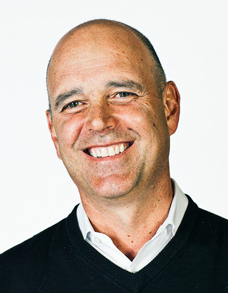Secure your place at the Digiday Publishing Summit in Vail, March 23-25

Do you remember when you were a child playing with your friends and completely losing track of time, ignoring the constant reminders about dinnertime? Did you ever turn a towel into a cape to become a superhero or an eraser into a car to become the next NASCAR champion? Did you ever find great pleasure in a mess of unorganized toys and odd clothes?
It’s this young, imaginative, free spirit that fosters happiness and allows creativity to peak. This childhood state is often coupled with inefficient chaos, which can ironically transform into creative masterpieces. Like all things in nature, people and ideas move through a life cycle of stages, including childhood, young adult, middle age and, finally, old age. Sadly, we often find that with age, execution, efficiency, ease and speed become heightened priorities at the expense of creativity.
Our industry is experiencing the young and old stages at the same time, which explains the feelings of turbulence and uncertainty. In its youthful state, digital media is creating an evolving, chaotic environment with a wealth of unpredictable possibilities and new ideas. Dynamic, inventive and strategic ideas are combining with technology to make the impossible possible, and it’s happening at an accelerating rate. We are in the childhood of a new industry era, and the proper environments need to be cultivated so that we can achieve healthy growth.
The challenge is that we are also an aging industry, particularly when it comes to ideas and systems around paid media. These mainly center on efficiency, which forces creativity to naturally take a back seat. This can create unhealthy situations, where if we aren’t careful, we can cause premature aging by imposing efficiency at the expense of creativity. An example is the movement towards ad exchanges, which is not a bad thing unless it comes at the expense of the creative discussion among media sellers, agencies and clients, which has always driven industry innovation, particularly during times of transformation.
In order to manage this transition from old to young and the dual worlds of efficiency and creativity, we need to free agencies and publishers from the drudgery of digital execution. The demanding and time-consuming planning, buying, negotiating and billing processes are forcing media professionals into a no man’s land that is neither creative nor efficient. Nothing healthy is growing in this environment, and we need to quickly move on or risk becoming old and sick before our time.
So, how can we defy the aging process? We need to use technology to become more efficient in order to free up people to be creative.
We’ve been here before. A similar situation arose in the mid-1960s, roughly 15 years after the last transformational media platform, TV, was introduced. That is when Dennis Holt, a young agency executive raised standards and cultivated growth with the new idea of aggregated TV buying. His innovation later led to the idea of the first independent buying service, Western International Media, and ultimately the huge global media agencies we know today. It also indirectly led to the creation of the TV upfront. By creating operational efficiency he enabled the next round of creativity. Coincidentally (or maybe not), it’s about 15 years since the advent of the digital RFP.
We challenge today’s media professionals to bring childlike chaos back to the media industry by leveraging out-of-the-box ways to execute media, just like Dennis Holt did almost 50 years ago. The industry is transforming, and it’s up to us to give it a healthy, happy childhood.
Charlie Thomas is senior vice president of Centro, a provider of media logistics software and services.
More in Marketing

WTF is Meta’s Manus tool?
Meta added a new agentic AI tool to its Ads Manager in February. Buyers have been cautiously probing its potential use cases.

Agencies grapple with economics of a new marketing currency: the AI token
Token costs pose questions for under-pressure agency pricing models. Are they a line item, a cost center — or an opportunity?

From Boll & Branch to Bogg, brands battle a surge of AI-driven return fraud
Retailers say fraudsters are increasingly using AI tools to generate fake damage photos, receipts and documentation to claim refunds.





